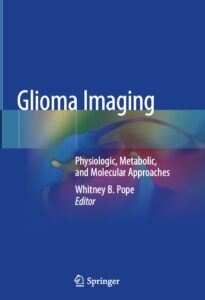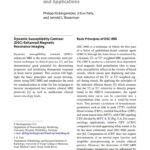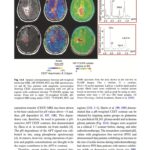
This book covers physiologic, metabolic and molecular imaging for gliomas. Gliomas are the most common primary brain tumors. Imaging is critical for glioma management because of its ability to noninvasively define the anatomic location and extent of disease. While conventional MRI is used to guide current treatments, multiple studies suggest molecular features of gliomas may be identified with noninvasive imaging, including physiologic MRI and amino acid positron emission tomography (PET). These advanced imaging techniques have the promise to help elucidate underlying tumor biology and provide important information that could be integrated into routine clinical practice.
The text outlines current clinical practice including common scenarios in which imaging interpretation impacts patient management. Gaps in knowledge and potential areas of advancement based on the application of more experimental imaging techniques will be discussed. In reviewing this book, readers will learn:
- current standard imaging methodologies used in clinical practice for patients undergoing treatment for glioma and the implications of emerging treatment modalities including immunotherapy
- the theoretical basis for advanced imaging techniques including diffusion and perfusion MRI, MR spectroscopy, CEST and amino acid PET
- the relationship between imaging and molecular/genomic glioma features incorporated in the WHO 2016 classification update and the potential application of machine learning
- about the recently adopted and FDA approved standard brain tumor protocol for multicenter drug trials
- of the gaps in knowledge that impede optimal patient management and the cutting edge imaging techniques that could address these deficits
Note : All files uploaded here with reserved copyrights for Medicine-21.com & Dr. Ahmed Hafez
These materials are for personal use and not for commercial use, so avoid copying or transferring these materials to other websites or blogs to avoid being subject to local and international legal accountability.






